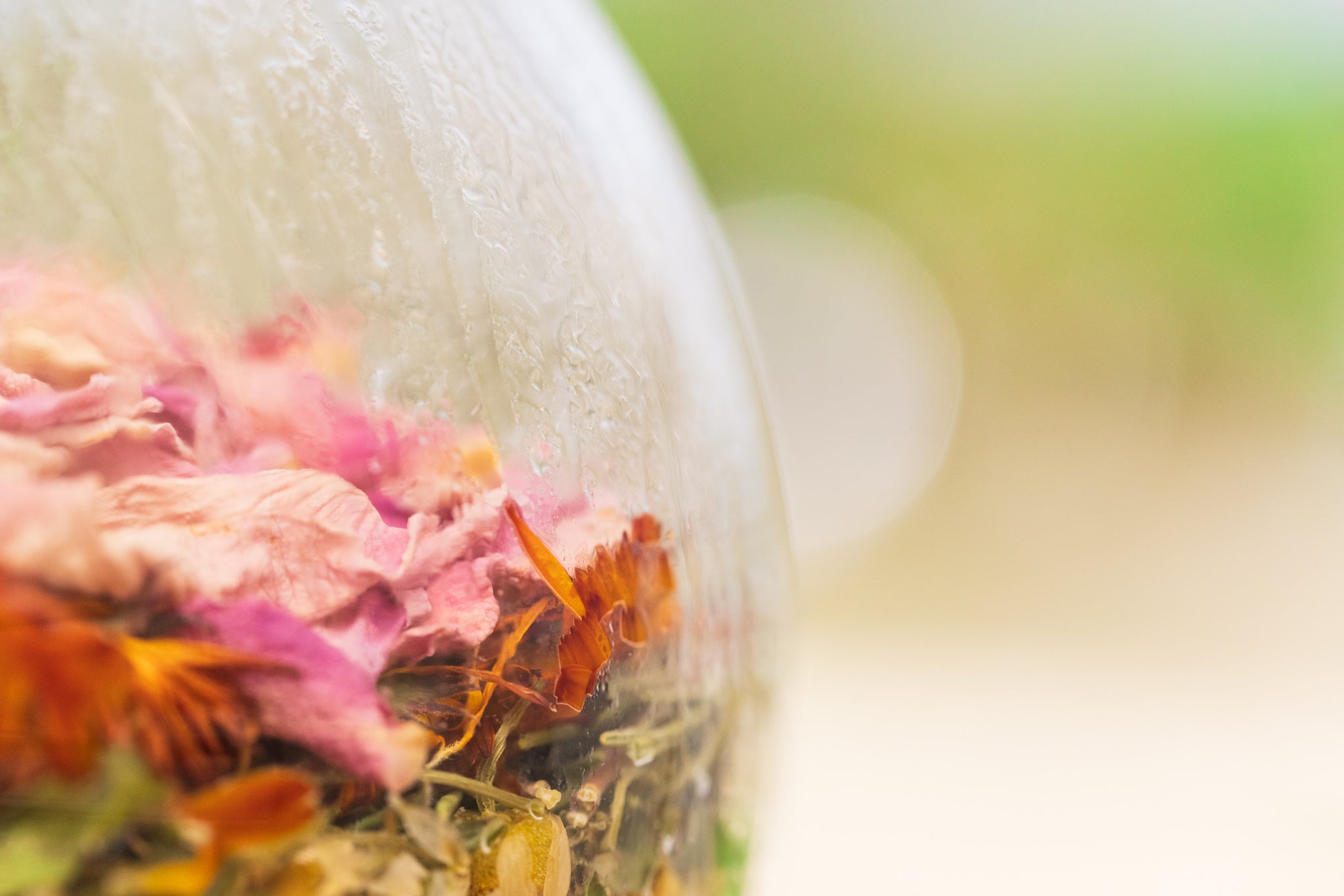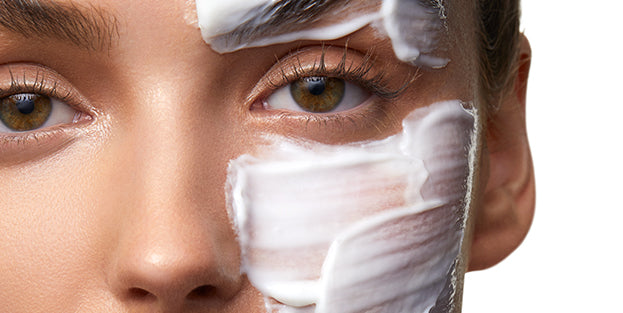Skin sensitivity can manifest in different ways at different times, making it sometimes difficult to identify and treat. The good news is that sensitive skin can be soothed and managed with the right approach to skin care.
Let’s take a look at the symptoms and causes of sensitive skin.
The telltale symptoms of sensitive skin
Dryness
Tightness, particularly after cleansing
Redness or blotchiness
Irritation – during a reaction, symptoms can include: itchiness, visible rashes or hives (welts on the skin), swelling, and a tingling, stinging or burning sensation
In addition, signs of sensitive skin can also include:
Blemishes
Premature ageing (due to dryness)
What causes sensitive skin?
Allergies
Sudden skin sensitivities can be caused by a reaction to an ingredient or product. This could mean you have an allergy, even if a product hasn’t troubled you before. People can develop allergies with exposure over time, so it’s best to check in with a doctor just in case. Dermatologists can conduct a simple and effective skin patch or prick test, so you can learn which ingredients to avoid to find the right skin care products for you.
Medical conditions and medications
Medically diagnosed skin conditions like dermatitis, acne, psoriasis, rosacea and eczema increase the likelihood of skin sensitivity. Once you’ve identified skin care products that are safe for use, being consistent and diligent about your skin care ritual will help manage any symptoms.
Some medications can also increase skin sensitivity, especially with exposure to the sun. Common culprits are certain antibiotics and painkillers, so always read the information on the pack or ask your pharmacist – you may need to take extra care and stay out of the sun during treatment.
Environment
Even normal skin can become sensitised when faced with heavy pollution or excessive sun, heat, humidity, air conditioning, cold, wind, rain or snow. For example, you may notice your hands and face feel drier and more sensitive during winter. Ensure adequate hydration, both inside and out – make sure you drink lots of water, and apply a rich moisturiser to protect your skin against the elements.
Genes
Naturally sensitive skin is often an inherited genetic trait, just like other skin types (including dry skin). Many of the medically diagnosed skin conditions listed above are also genetic to some degree. If you’ve had a predisposition to sensitive skin for a while, it might be time to visit your doctor.
Lifestyle
Poor nutrition, alcohol, smoking, stress, dehydration and even use of harsh chemicals like household cleaners can all sensitise skin over time. Elimination can help identify external aggressors to avoid.
What you wear
Finally, clothing and jewellery can affect sensitive skin. Coarse fabrics like wool often irritate, as well as the chemicals found in laundry products such as washing powders and fabric softeners. Nickel, a metal found in costume jewellery, has also been known to trigger contact reactions.
Swapping materials for natural fibres like cotton and bamboo, as well as using laundry solutions suited to sensitive skin, may help. With jewellery, remove at bedtime and buy stainless steel or sterling silver (and not just plating) to protect yourself against possible irritation.
Ageing
Ageing skin and changes in hormone levels can cause skin sensitivity. While some aspects lessen with age (e.g. blemishes), some others increase (e.g. dryness) as skin layers weaken and become more fragile.
How to manage sensitive skin
Cleanse
Just like all skin types, sensitive skin needs cleansing too. A gentle cleanser for the face like our Soothing Foaming Cleanser helps remove impurities and rebalances sensitivity with the power of Lavender.
Using gentle products with natural ingredients will protect the skin against environmental aggressors, preserving the skin’s natural defences.
Soothe
Look to specially formulated products like our Nurturing Mask to help reduce redness to hydrate and soothe skin. A gentle treatment mask, it contains nourishing plant oils and calming natural botanicals like Aloe Vera.
Hydrate
A light moisturiser in warm weather will ensure optimal balance and hydration for sensitive skin. Our Soothing Day Care Lotion is a light-textured moisturising lotion to help calm and protect against daily environmental aggressors.
For overnight protection, deeply hydrate and soothe sensitive skin with a serum like Calendula Redness Rescue Restorative Treatment Serum. This helps provide a natural protective barrier and restore the skin’s epidermal defences.
Of course, don’t forget to keep up your water intake, too.
Avoid
Seek out natural skin care products, without common irritants like artificial colours and fragrances.
Steer away from harsh exfoliants as they can aggravate sensitive skin. Pat, don’t rub, your face and body after showering, and finish with a lightweight moisturiser.
Discard and replace any old makeup or skin care products, as well as medications or other topical treatments past their expiry date.
Test
If you have sensitive skin, it’s always a good idea to patch test any new products before using them – especially if they contain unfamiliar ingredients. If you’ve never done this before, please consult your doctor.
Key natural botanicals
Calendula
Known for its bright yellow and orange flowers, Calendula has pronounced soothing properties and is used to rebalance sensitivity on the skin and throughout the body. Calendula is excellent for calming, restoring and hydrating sensitive skin.
Our Calendula Redness Rescue Soothing Moisturising Cream with Comfort Complex deeply hydrates and soothes, while protecting skin from environmental aggressors.
Arnica
The Arnica plant has a bright yellow, daisy-like flowers that has been used in homeopathic medicine for hundreds of years. Arnica is typically applied to the skin to soothe sensitivity, helping to rebalance and cool delicate areas.
Our Arnica Cream helps soothe and calm the skin.
Lavender
Widely celebrated for its calming properties, Lavender is a hydrating and calming extract, used to rebalance dryness on the skin, leaving it soft and refreshed. Lavender’s characteristic fragrance is often used to promote restful sleep and aromatherapy relaxation.
Our Calendula Lavender Hydrating Essence pairs two powerful botanicals to soothe sensitive skin. It’s an aromatic cleansing pre-treatment that softens the skin surface, opens up pores and soothes the senses.
While it’s a complex and dynamic skin type, sensitive skin is usually very manageable. It just takes the right skin care approach to soothe, comfort and maintain that all-important balance for sensitive skin.
Shop the Story: Sensitive Starter Set







